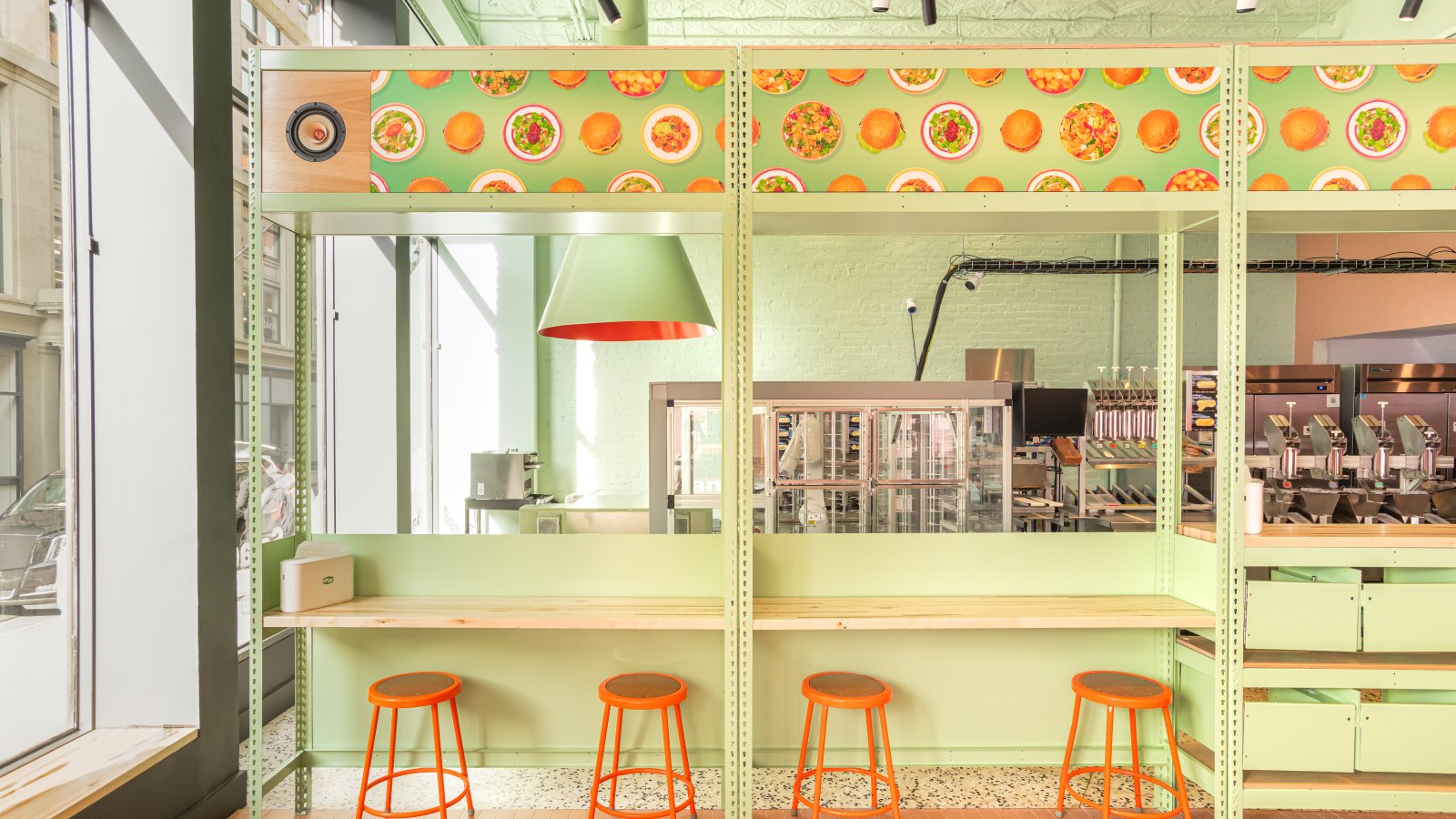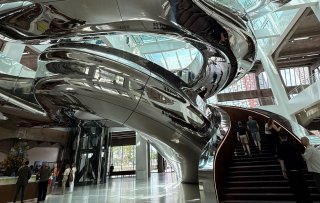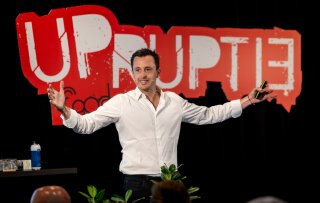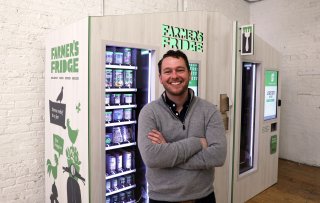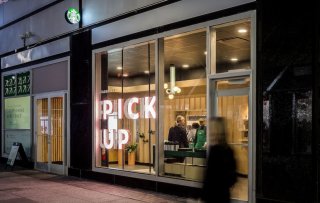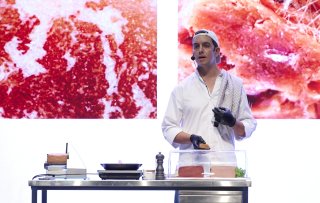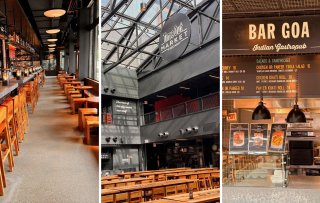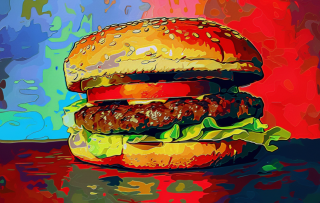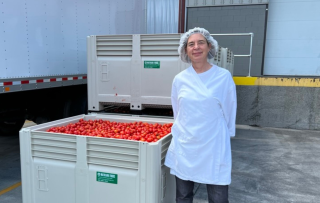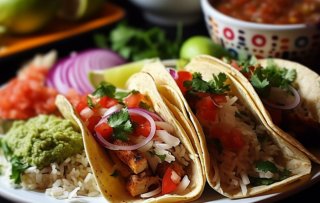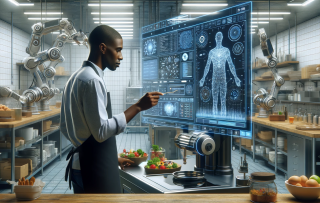People have been experimenting with robots in the kitchen for decades, but nowhere has it been a resounding success. Steve Ells, chef and founder of the highly successful Mexican chain Chipotle, wants to prove that it does work. With the new Kernel formula in New York, the robo-chef is giving the kitchen brigade a helping hand.
He is not the first person to gamble on robotization as a winning innovation for the restaurant industry. Steve Ells, born in 1965, started as a sous chef in fine dining and ended up a wealthy man at the head of a publicly traded company. His story reads like an adventure book.
Ells trained at the Culinary Institute of America and then worked in the kitchen of one of America's first celebrity chefs: Jeremiah Tower. Tower ran Stars, a San Francisco restaurant considered one of the birthplaces of California cuisine.
After a few years in the kitchen at Stars, Ells wanted to start his own gourmet restaurant. But like any start-up entrepreneur, he struggled with the question: where do I get the money? He borrowed $85,000 from family and friends and in 1990 opened the first Chipotle, a fast-casual formula inspired by Mexican taquerías. With the money he would earn by selling exceptional burritos, he planned to finance his fine dining restaurant.
.jpg)
Chipotle, an instant success
But things turned out differently. Chipotle became an instant success. Although Ells took a totally different approach from all other fast food concepts and everyone called him crazy – Ells made all the burritos from scratch, used only organic ingredients and was committed to sustainability – he quickly gained fans. Within a month, he was selling 1,000 burritos a day.
With so much sales potential, growth with Chipotle was more obvious than fighting for prestige in fine dining. Ells decided to expand. He borrowed extra money, opened new branches in different locations, and after a few years McDonald's saw potential and invested heavily in Chipotle. The company entered a growth spurt, went public in 2006, the stock price exploded, and in 2020 Ells bid farewell to his success story. Chipotle now has 3,570 locations, had annual sales of $2.8 billion in 2024 and a net profit of about $380 million: that's 13.8% of sales. Not bad for a fine dining chef. Ells has estimated assets of $500 million.
“The business model for Kernel is right. We just need to build a business.”
New concept Kernel
Now several years after leaving Chipotle, this highly successful restaurateur is opening a new concept: Kernel. A fast food/fast-casual formula with vegetarian dishes, bowls and chicken sandwiches, intended for people who are looking for a quick tasty meal solution with little interaction during lunch. The standout innovation: a robotic arm in the kitchen. In one fluid motion it drops a veggie burger onto a conveyor belt, after which the product passes through an oven and becomes crispy. Along with a toasted bun, the burger is sent to an employee who finishes it with toppings and places it in a cubby. Guests are notified via their phones that their order is ready.
Ells said in an interview with the Wall Street Journal that the platform he has at Kernel is a 'complete reinvention of the way restaurants work.' Ells claims that he now does two things better: “We make better food and we build a better economic model for restaurants.” Ells is convinced that he can take food to the next level by having the preparation carefully done by a robot. It reduces monotony for people and brings consistency and precision to the menu. Ells added that he needs fewer people at Kernel: “In a typical restaurant, you might see a dozen people working during peak periods. With us, it's three.”
.jpg)
“The platform at Kernel is a reinvention of the way restaurants operate"
The opening of his latest brainchild took place in February 2024 in a “stealth” manner, without marketing or advertising. The first few months were intense, with many learning moments. Kernel started with a vegan menu, then became vegetarian and now also serves chicken sandwiches. The ordering system crashed a few times and the restaurant had to be redesigned because guests felt like they were in a futuristic factory rather than an eatery. The official opening is scheduled for spring 2025, according to the website.
Ells wants to reproduce his magical growth success of Chipotle
One kitchen for fifteen location
Ells has serious ambitions to grow. He wants to repeat his magic growth trick from Chipotle. With $36 million of “seed capital” in his pocket, he can get off to a strong start. Kernel's efficiency is not just in robots. The new formula's production kitchen is centralized: from a large kitchen in Manhattan, some 15 locations can be supplied with fresh dishes daily. The branches themselves are compact, gas-free and low-power. Also notable: because robotization saves labor costs, employees get paid higher salaries.
According to Ells, many other entrepreneurs are looking at robotization. The vegetarian formula Sweetgreen and the burger chain White Castle are often mentioned as frontrunners. Indeed, any operator of a fast-casual or fast-food formula must respond to the challenges of the restaurant industry: high labor costs, high employee turnover, expensive energy and rising food prices. The business model is right, Ells said: “The margins are going to be great. We just need to build a business.”
 Written by
Written by 